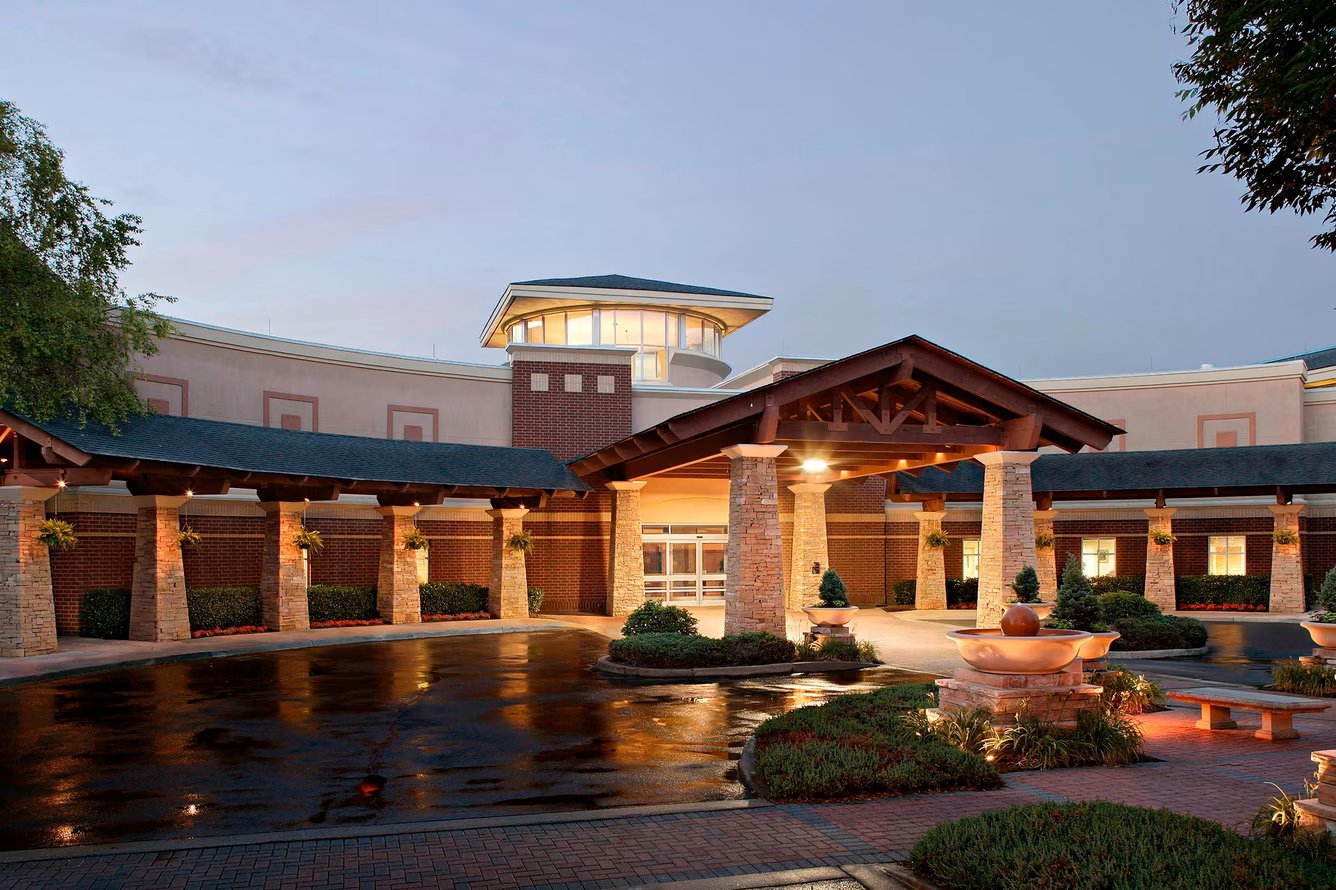The MeadowView Conference Resort and Convention Center in Kingsport, Tennessee is owned by the city and a financial mess. So they’re looking at bailing out the Marriott-managed golf course and conference hotel with additional taxpayer money. Even some officials, though, are wondering why a city would be in this business at all?
Credit: MeadowView Conference Resort and Convention Center
The Assistant City Manager argues that the property’s operating model “has always required some level of subsidy” since its inception. That was around half a million dollars a year before 2020, but has now reached $1.3 million to cover a year’s losses. Advocates argue it’s worth taxing people to bring conferences and tourists. However,
- subsidies are growing precisely because there are fewer conferences and fewer tourists.
- historically 70% of events at the property were local to begin with.
- There are also plenty of privately-owned venues outcompeting the hotel.
- And they face competition from actual nearby tourist destinations like Pigeon Forge and Gatlinburg, where attendees have amusement parks, shopping, and entertainment within walking distance.
Total property sales have remained stagnant over the past two decades, so in inflation-adjusted terms revenue has been declining. A private business would have to innovate or cut costs. But as a government-backed entity, MeadowView has responded by simply absorbing the higher costs – and passing them onto taxpayers.
And those tax dollars don’t just prop up a failing hotel, they (1) divert resources from core public services, (2) draw business away from other hotels in the area hurting their owners and employees.
Meanwhile, the benefits of MeadowView – upscale meeting space, hotel rooms, a golf club – accrue to a relatively small group (conference-goers, tourists, private event hosts, and the resort’s corporate managers), while the costs are borne by the general public. This is ‘Reverse Robin Hood’ redistribution – taking from the average citizen to support a deluxe facility that primarily serves events for the local elites.

Credit: MeadowView Conference Resort and Convention Center
Marriott collects fees, taxpayers eat losses. MeadowView can drop price to attract business, and undercut private hotels. It can raise price and lose business, knowing taxpayers are stuck bailing them out. City-owned convention centers and hotels generally fall short of promises and rosy projections, becoming a money pit for taxpayers. Developers tout them as economic strategy when they turn out to be an economic strategy for the developer and managers themselves on the backs of taxpayers. (Convention attendance was declining significantly even before the pandemic, as municipal meeting space expanded rapidly.)
Washington, D.C.’s convention center, for example, was projected to need a $5.6 million subsidy but ended up losing $12 million twenty years ago. Pre-pandemic, Orlando’s Orange County Convention Center was running $10 million deficits at 50% occupancy. When governments run hospitality businesses, they frequently overestimate revenues, underestimate costs, and leave taxpayers on the hook.
- A city government doesn’t personally bear financial risk. Politicians don’t internalize the risk and this creates bad incentives.
- Benefits are concentrated on developers, managers, and recipients of the service who experience those directly (and are willing to lobby for them) while costs are dispersed on the general population. There are fewer than 60,000 residents of Kingsport, so this one hotel costs residents over $20 apiece. It wouldn’t even be rational, though, for the average resident to spend more than $20 opposing the project.
- Public officials and voters fixate on first-order visible benefits, and ignore the unseen costs. They see a nice hotel and convention center bringing in visitors (the seen), but it’s harder to see the opportunities foregone when public funds cover annual losses (fewer resources for schools, more money left in private hands to be spent elsewhere in the economy). Incidentally, the city is raising property taxes 24% this year.
The Marriott contract runs to 2027. The economic development benefits of the hotel never really materialized and are declining. Taxpayers have been subsidizing the property for almost 30 years.
Zohran Mamdani wants socialized grocery stores in New York City (because without the drive for 1-2% margins private groceries attain, prices would somehow be lower, and these would surely be immune from public pressures for inefficiencies). It’s as if Boris Yeltsin never visited a Houston grocery store, marveled at the access and choice that the average American had to food, and accelerated the collapse of the Soviet Union.
Boris Yeltsin visits a grocery store in Houston, Texas with an official Soviet delegation (1990)[1024×639]
byu/Breab1 inHistoryPorn
There is a core mission that governments can accomplish focused on public goods and funds transfers. If you value government, you should want it to stay focused and efficient to accomplish its goals. Government enterprises – like hotels – become captive to bureaucratic inertia, political influence, and bailouts. That’s not the failing of any individual official in Kingsport – it’s the systemic reality when incentives are misaligned.
By the way in my home city of Austin, the Hilton at the convention center is owned by the city. When a member of the City Council lost re-election, they were given a six figure no show job as the city’s ownership representative to Hilton, which had a long-term management contract to run the hotel. The job was described as intensive: having to send emails to set up board meetings with the city council.








